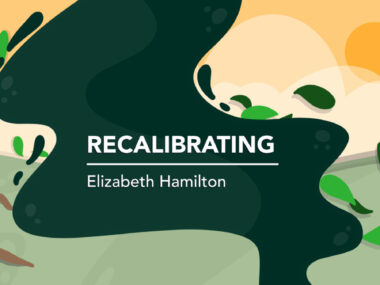A simple reply that quenched curiosity and promoted acceptance
I'm used to inquiries about mobility aids, but this interaction caught me off guard
Written by |

I’m 100% dependent on mobility aids due to my current stage of Friedreich’s ataxia (FA) progression. Given that, there’s never been a shortage of reactions by others to my various walkers and wheelchairs.
In my personal experience, most toddler boys are fascinated by anything with wheels, so I’ve grown accustomed to being an eye-catching curiosity for them. Usually, I’ll overhear parents gently explaining to their boys that they’re seeing a walker or a wheelchair, and I must use it to get around safely. I love short and sweet answers that don’t have positive or negative connotations that lead children to feeling one way or another about the world around them. They’re just simple answers to curious questions.
Overall, I’d say that my use of mobility aids has been met with kindness more often than not, for which I’m extremely grateful, especially because I know this won’t always be the case. Even if that kindness has a dash of pity or a touch of condescension, I’ll offer people the benefit of the doubt and choose to acknowledge their kindness with my own by saying things like, “I appreciate you,” or “Thank you for your kind and helpful heart.”
But this weekend, I had a new and unexpected experience.
I’ve always loved animals, and I’m intrigued by how they react to my mobility aids. Dogs usually sniff my walker, which allows me to extend my hand to be included in their investigation. Cats, on the other hand, are fairly wary and keep a safe distance from such a large unknown.
I’m about to play into a stereotype that a lot of people think about when they hear I live in Texas, but this weekend, my husband and I took our two children on a trail ride with my parents. It was so lovely to be out in nature and encouraging the children to try something new.
The horses were waiting for us at the bottom of a small, rocky hill that my walker couldn’t safely navigate. My parents held my arms as we slowly made our way on foot, while my husband carried my walker to the bottom of the hill.
The horses grew a little antsy when they saw my walker. I think it was just something new they hadn’t seen before. I remained still and let them observe it for a bit. One horse seemed particularly transfixed on my walker and me. A young lady who’d been refilling water troughs and tending to the horses gently but confidently approached. She put her hand on the horse’s nose, gently patted him, and said, “It’s just a walker. Don’t be rude, dude.”
I know she was talking to an animal and talking to humans is very different, but I admired her approach a lot. In just eight short words, she had acknowledged the curiosity, normalized my dependence on a walker, accepted it, and encouraged kindness with a simple answer and redirection.
In general, I think we humans talk too much. I’m certainly guilty of it. When speaking on behalf of a stranger, I think less is always best.
“When you talk, you should always be kind and wise. Then you will be able to answer everyone in the way you should.” — Colossians 4:6
Note: Friedreich’s Ataxia News is strictly a news and information website about the disease. It does not provide medical advice, diagnosis, or treatment. This content is not intended to be a substitute for professional medical advice, diagnosis, or treatment. Always seek the advice of your physician or another qualified health provider with any questions you may have regarding a medical condition. Never disregard professional medical advice or delay in seeking it because of something you have read on this website. The opinions expressed in this column are not those of Friedreich’s Ataxia News or its parent company, Bionews, and are intended to spark discussion about issues pertaining to Friedreich’s ataxia.






Leave a comment
Fill in the required fields to post. Your email address will not be published.